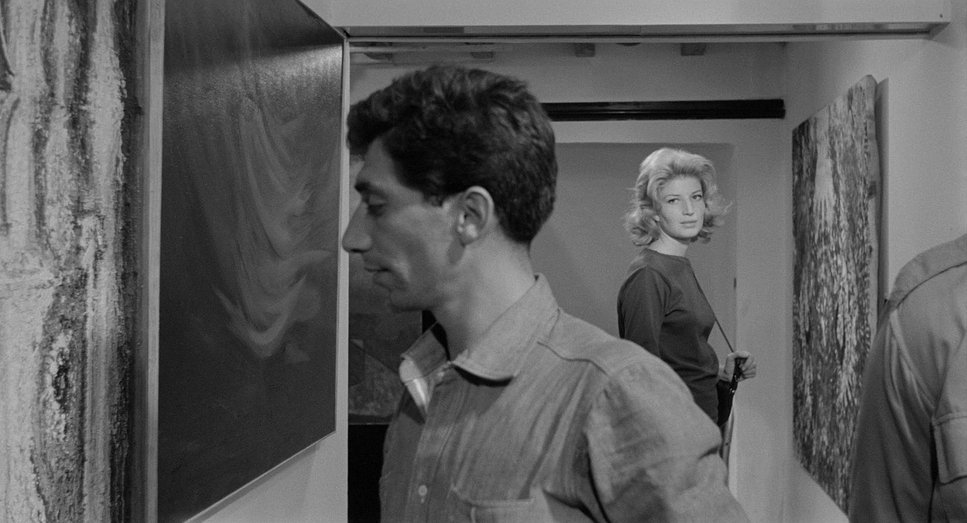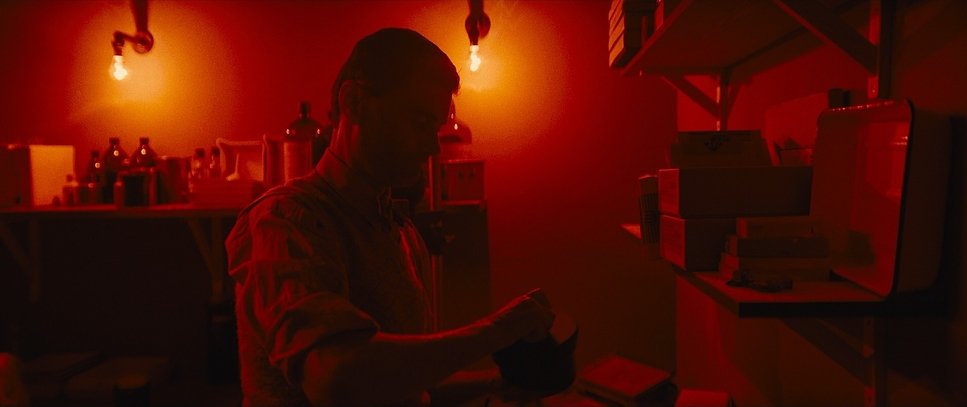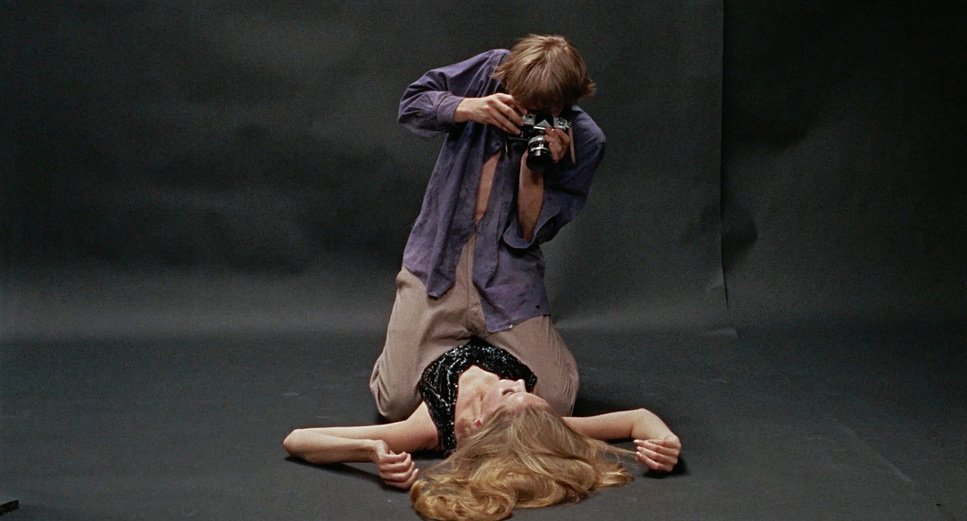
A Short Film Script:
The Gift
A short horror story inspired by Van Gogh follows a boy and a girl whose shared passion for art seems to spark a genuine romantic connection during their encounters in an art gallery. However, subtle hints reveal a darker side to their story, culminating in a shocking and horrific twist at the end.

Future Project Plan:
The Proof of Our Love
It is a story about a shopkeeper in a film shop who begins to peep into a regular female customer through her developing films and then falls in love with the customer. In an open ending, the shopkeeper is lost in the film world.

A Short Story:
Ashes in the North Pole
It’s a short story about a couple embarks on a journey to Iceland to witness the enchanting aurora, but as they navigate breathtaking landscapes and local legends, a tragic twist threatens to turn their dream into a haunting reality. With love intertwined with loss, can the ashes of their shared memories shine as brightly as the northern lights?
It’s about the ashes of the sun, the ashes of memories, and the ashes of a human being.

Film Reflection: Blow-Up by Michelangelo Antonioni
"There's a moment when one grasps reality, but the next moment it eludes us." It's the description of Blow-Up (1966) by Michelangelo Antonioni. I always have a fear of death. Every time I delve into the feelings of death, I begin to doubt the reality of the world. What if the people I see and the flowers I smell are not real? What's the meaning of our life if we are all born to die?
It was my first time realizing that films could deliver thinking and philosophy, not just drama. The guitar from the rock band, the corpse in the enlarged photo, and the mimed tennis game... They are all pieces formed to tell a story rather than the plot—films are more than plots.
Also, Blow-Up has a charm that portrays abstract feelings through art and surreal expressions. What Antonioni tries to tell us is that the truth does not exist. The form of the mimed tennis game is a mixture of both truth and falsehood in and of itself. Thomas picks the tennis ball up as if merging both the real and sham world. The end is incredibly brilliant that I understand something that makes movies surpass books: their ability to visualize abstract philosophies. Later, a question arose in my mind: When we do imaginary and false things, will our desires really be satisfied? After searching on the internet, I found that auto-suggestion and Lacan's imaginary order might denote it to be right. What about the mental desire? It would be interesting but ironic to see the protagonist fulfill their dream through mime.
Blow-Up led me to create a story that doesn't focus on a single person but reflects the entire society and human beings. The world is big, but the truth behind us may be the same. Whether it be Tyler Durden in Fight Club, who employs violence to revolt against social rules, or the so-called oddballs riding the NYC subway defying the societal code of what is considered normal, they allow me to see a pressing need for attention, release, and compassion. And I wish for my camera to be a medium for cultivating a society that is not only for the well-put-together but for everyone.
Antonioni's Blow-Up was released In 1966. He used the unique medium of film to express his meditations about the world. Fifty-seven years later, there is still a group of people, like me, enthralled by his movies, mulling over his ideas. I think that's the beauty of movies, and I want to be the kind of director whose work, no matter how many centuries later, still strikes a chord in the hearts of human beings and is talked about for generations to come.

Artistic Statement
On a pouring afternoon, when I was waiting in line at a roadside famous restaurant in Hong Kong, I met Maggie. She was twenty years older than me, but we instantly became friends. Besides the love for Thai food, we shared passions for many other things in life. After lunch, we roamed the streets and alleys of this city, exploring the hidden corners and seeing the city through the lens of a local like Maggie. It was like one of those Woody Allen’s films. At the end of the day, she escorted me to the airport and gave me a big hug. “I’ll always keep our photo until you become a famous director.” She joked. After saying goodbye to her, my tears fell at the moment I turned round. It seemed to be the best ending of A Rainy Day In Hong Kong.
The random and sparkling encounters are one thing I love about exploring cities. As a hopeless city explorer, I enjoy wandering into the unknown and the unchartered, believing that exploring the innermost parts of a city reveals a cinematic story. Whether it is my hometown Chongqing, one of the most charmingly complicated cities in the world, or a new place I briefly encounter like Hong Kong, exploring allows me to observe life and people in the most subtle ways and experience a wide spectrum of emotions. When I studied alone in Shanghai, I went on night walks every day. The night bestowed new perspectives of this cosmopolitan on me. Those days were dark for an out-of-town girl who was preparing for the test alone, so Shanghai gave me a sense of modern loneliness. Underneath the big and glamorous metropolis, there was a group of people struggling on cold nights like the delivery guy riding a beat-up electric motorcycle, a man standing on the street singing and begging…As I walked from one building to another, through one giant electronic billboard after another, I understood why Spike Jonze chose Shanghai to film since I felt the same with the character Theodore in Her.
After years of begging my parents for a camera, I finally got a Sony-my dream companion for exploring. I brought it with me, drifting around Chongqing. The hotpot restaurant hiding under the bridge, the skyscrapers besieged by last-century compounds, and especially the locals from all walks of life inspired me to shoot and edit two short films about this city. The first one was about a local delicacy. I took my camera to the hottest spot in this city Hongyadong which looked the same as the architecture in Spirited Away, and found a small shop that insisted on making the local traditional snack of flavored Hu beans. After getting the approval of the owner, I made a short film on this snack, promoting this traditional craftsmanship and culture to the younger generation. By capturing the rising steam of frying beans and beads of sweat running on the face of this middle-aged owner, I was able to create an ode to my beloved hometown.
Chongqing proved to be the perfect place for a story lover like me. When I learned about a dating corner for old people hidden in the park, I carried my camera and went there. Wondering among the old who were getting together to talk about each other and possible arrangements, I had the opportunity to dive into the issue of aging and the predicament it brought about to old people, their families, and society as a whole. For example, my interviewee Mr.Guo, who came here to find a life partner, told me how he used to complain about the chatty, noisy household. But now the silence in his house was deafening. Talking with him allowed me to shed my prejudices as a storyteller and a person. I made this interview and my observations into a short film called “The Last Hope Buried In Dating Corner”. This time I showed the most emotional and least perceivable part of our city. Many people, including friends, families, and my local fellows, shared with me, after they watched these short films, how they were able to see the old ones in their families and see their homeland in ways that they never did. I am so proud of that.
Exploring cultivates my sensitivity and empathy as a storyteller. This is the way I interact with the world, it makes me aware of the diversity, breadth, and inclusiveness of life. In a world that is going through acute changes, being inclusive helps to build common bonds and effect positive changes.
Just as the sky is not always clear, when I become a filmmaker, I want to focus my lens on the deepest part of society just like the dating corner in my city even like those unprivileged, morbid, or even extreme. Whether it is Tyler Durden in Fight Club who employs violence to revolt against social rules, or the so-called oddballs riding the NYC subway defying the societal code of what is considered normal, I see a pressing need for attention and compassion. And I wish for my camera to be a medium for cultivating a society that is not only for the well-put-together but for everyone..




